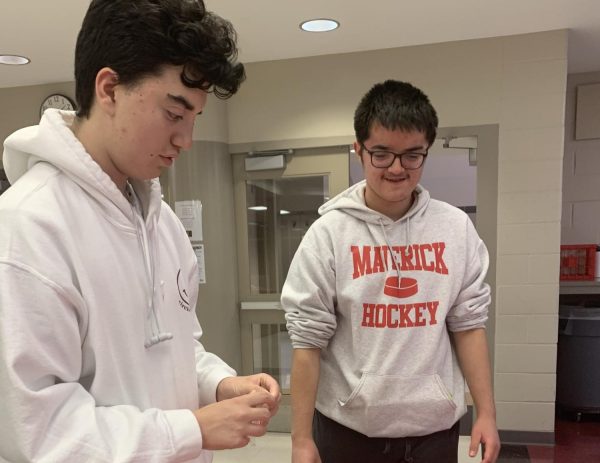More Than Just Zombies
HBO’s adaptation of the beloved game, “The Last of Us,” brings a fresh and creative take to the zombie genre.
Everyone loves a good zombie show. From series like The Walking Dead to movies like Night of the Living Dead, zombies have embedded themselves into modern media as a classic subject. With such a heavily saturated genre, new zombie content must bring something new to the table. One way shows are doing this is by focusing on the people rather than the zombies, especially on what humanity remains in the last of humankind. This is exactly what The Last of Us does.
Based on the best-selling game going by the same name, The Last of Us takes place after a pandemic has destroyed the world with only scattered communities and quarantine zones remaining. The show follows Joel, played by Pedro Pascal, who must deliver humanity’s last hope, a 14 year old girl named Ellie, played by Bella Ramsey, across the country.
Many people had hefty expectations for the show long before it even aired. This is a story millions already know and love so when adapting this beloved game, one needs to be careful. The show runners, however, accomplished this burdensome task flawlessly.
The show perfects the art of balancing sticking to the source material yet knowing when changes need to be made. The best example of a major drift from the game lies in the third episode, a “Long, Long Time,” which follows a survivor, Bill, and his companion, Frank. In the game, Bill, bitter and isolated, serves as a cautionary tale to Joel, a warning as to what will happen if he continues to shut everyone out. In the show, however, Bill is an example of what Joel could have if he decides to take down his walls. This is a much more impactful message compared to the tragic story the games presents us with.
By removing Bill’s tragic tale, the show not only succeeds with a stronger theme, but also removes a common homophobic trope. Tragedy is all too frequent in queer media, sometimes feeling like the only way people know how to write LGBTQ people is through their suffering. Happy queer stories are rare while straight media has a plethora of cheerful films and shows to choose from. In the game, Bill and Frank are both miserable, their story filled with hate and betrayal. By letting these two gay characters be together and live a happy life, the TV show has succeeded in making an exemplary piece of gay media that fights stereotypes instead of enforcing them.
On the opposite end, when it comes to sticking to the source material, the seventh episode, “Left Behind,” does it best. This episode covers the game’s DLC, going by the same name, “Left Behind.” The TV show, like the game, switches back and forth between the present, where Ellie is looking for medical supplies, and the past, where the story of Ellie and Riley is told. The episode is almost a shot for shot remake of the game with only minor changes made. The expert pacing and storytelling of the game is utilized perfectly in this episode. The DLC is already an emotional hard hitting piece not needing any changes, something the show runners clearly realized.
Not only does the show have excellent writing, but it also has phenomenal special effects. The infected in the show look incredible almost as if they jumped right out of the video game. There’s no cheesy CGI either with the infected done almost entirely with prosthetic and practical effects.
There is no doubt that fans of the game were sweating as they tuned in to HBO for this adaptation. Nobody wants to see their beloved game butchered by directors hungry for a quick and easy dollar. Luckily for fans, show runners Craig Mazin and Neil Druckmann have created a masterpiece which faithfully and artfully adapted both an iconic game and heart wrenching story.









